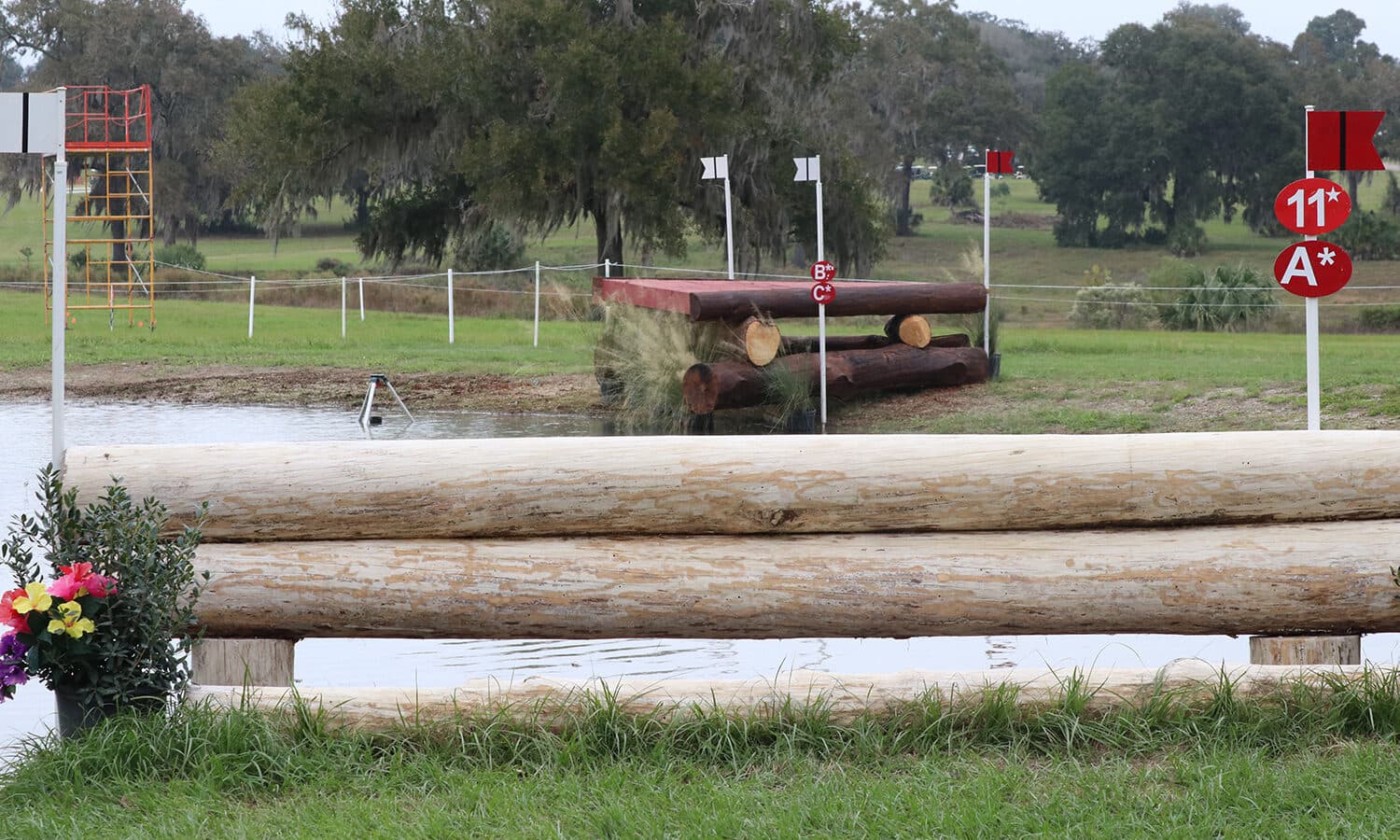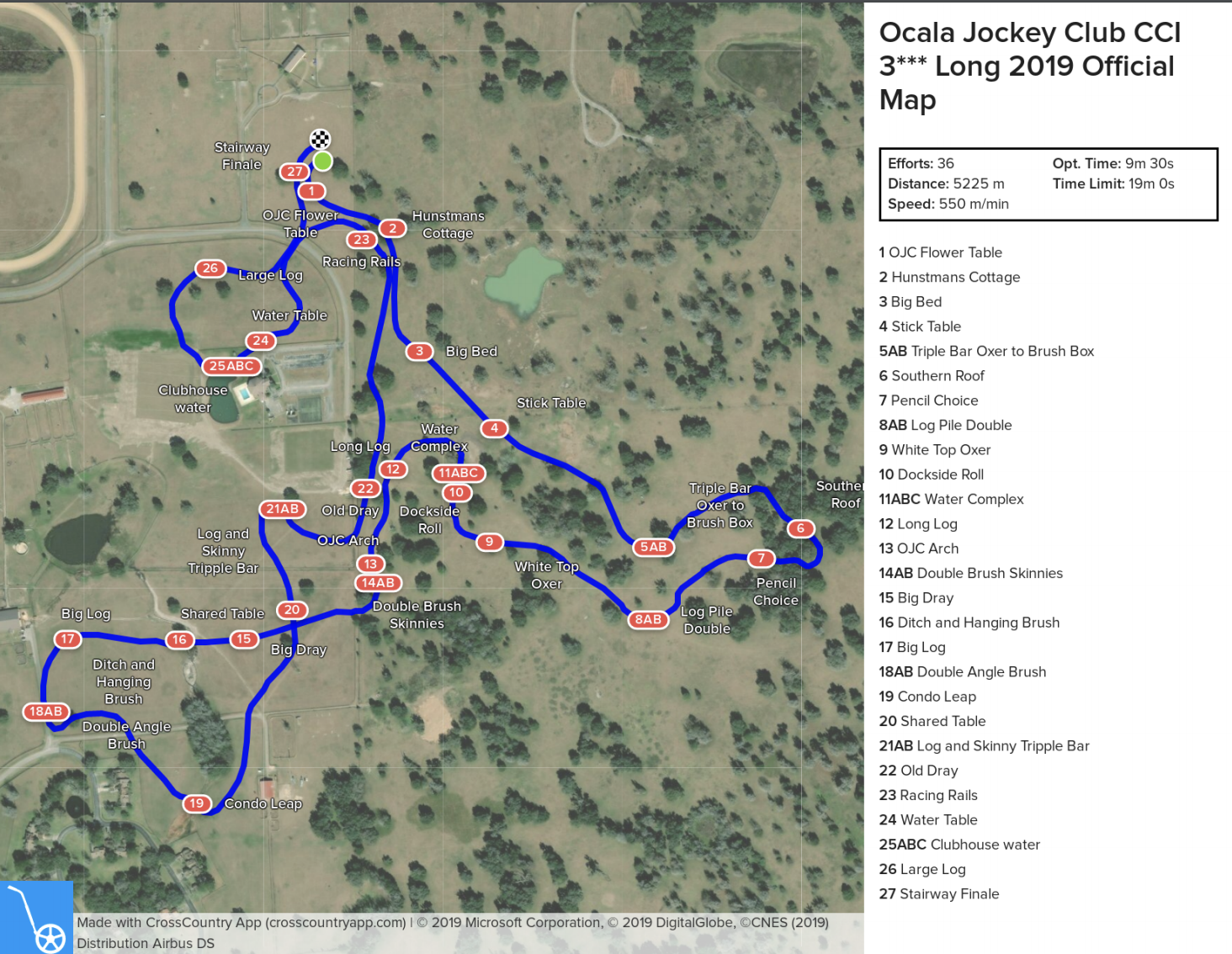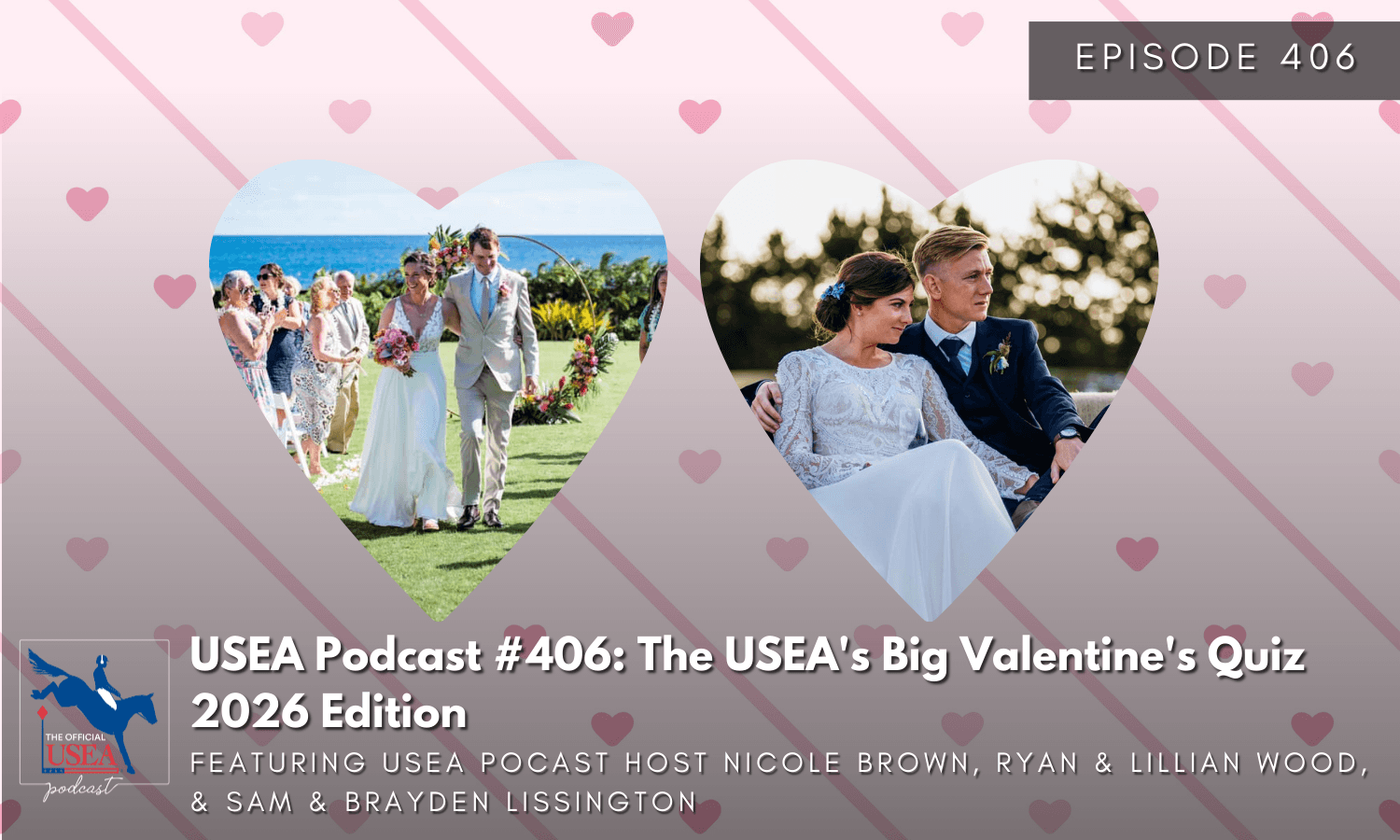Ride Between the Flags with Phillip Dutton

Ever wonder what the pros see when they're out walking cross-country? In the Ride Between the Flags series, riders walk us through their approach to tackling different cross-country questions. The legendary Phillip Dutton talks us through fence 11ABC of the Ocala Jockey Club International Three-Day Event CCI3*-L cross-country course.
Phillip Dutton is riding Fernhill PickPocket, the 8-year-old Irish Sport Horse gelding owned by Lee Lee and Annie Jones and Caroline Moran, in the CCI3*-L this weekend at the Ocala Jockey Club International Three-Day Event. The pair have won their last three events at the CCI3*-S level and start the weekend sitting in first place.
Clayton Fredericks designed the CCI3*-L track with 36 efforts over 5,225 meters with an optimum time of 9 minutes and 30 seconds. Fence 11ABC is the first water complex of two on the course.
“We are still relatively early in the course – the first third, so we come around a big sweeping turn in the approach,” explained Dutton. “Fence 10 is helpful for me because my horse is strong and aggressive so I will put him in nice and close to that one to get him to back off and hopefully land in a nice balance.”
Fence 11A is the drop into the water with six bending strides to the corner which for the direct route is marked as B and C.
“It is a little unusual for greener horses to have the gap [under the log], so I just need to make sure to give him plenty of confidence here, so he doesn’t question it,” continued Dutton. “Then we have a slight bending line to the BC which is a corner coming out of water. There are a few difficulties to [the corner] as we want the horse to take off on the ground – not from the water. We have to make it clear to him to not launch out of the water, but to put that last stride in because if I get nice and close to it, it actually isn’t a big effort, but leaving to far off it would make it pretty hard. Added to that we have the difficulty of our flag rule now. We want to make sure we stay well inside those flags jump it right in the center.”

So what does a question like this test for a horse at the CCI3*-L level?
“[The course designer] is testing that you have a horse that will come back to you and be responsive,” answered Dutton. “At this stage, the tiredness shouldn’t play a part yet, so it is more just the adjustability and the bravery of jumping into water over something like this and then the adjustability for coming back for a narrow fence at the end. It is a good question, something that all the riders need to give respect for, but should be a good education for the horses.”
For Dutton, the striding isn’t as important as riding the canter and the feel throughout the question. “It steps in a quiet six strides which I will keep it in mind, but I won’t be set that I have to do it in six,” he said. “If my horse jumps in and lands a bit flat and quiet then I might stay in that quieter canter. I think the worst thing would be to rush out. If he jumps in big and strong then I will do everything I can to get him to come back so I can have a more technical ride. It is related, but I am not going to think of it too much.”
Dutton and the rest of the CCI3*-L riders will be tackling the cross-country on Saturday afternoon.

Helpful Links:
- Ocala Jockey Club International Website
- Schedule of Events
- Ride Times
- Entry Status
- Live Scores
- Livestream
- USEA’s Coverage
Follow the USEA event coverage on social media!
Facebook | Instagram | Twitter















